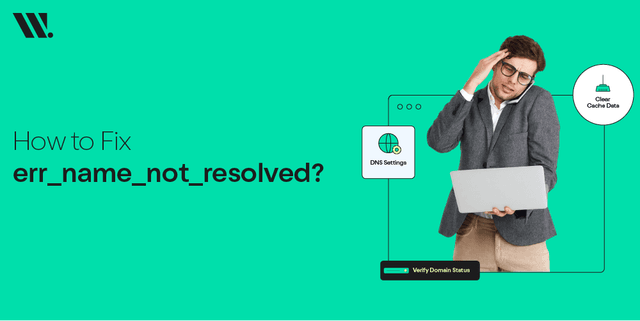Are you looking to secure your website and protect your customers data?
SSL Certificates are a great way to do this, but there are many different types of SSL Certificates available.
In this article, we'll discuss the pros and cons of each type of SSL Certificate, so you can make an informed decision about which one is best for your website. So let's get started by taking a closer look at the different types of SSL Certificates!
How to Select the Right SSL Certificate for Website Security?
As websites continue to prioritize security protocols, selecting the appropriate SSL (Secure Sockets Layer) certificate for your site is becoming more crucial.
SSL certificates establish a secure connection between the website server and the user's browser, safeguarding sensitive information, including passwords and credit card numbers, against unauthorized access.
Nonetheless, numerous SSL certificate types like Comodo Positive SSL, Comodo Essential SSL, Comodo EV SSL, and many more exist, each presenting distinct benefits and drawbacks.
The following outlines the pros and cons of different SSL certificate varieties:
1. Domain Validated (DV) SSL Certificates
2. Organization Validated (OV) SSL Certificates
3. Extended Validation (EV) SSL Certificates
4. Wildcard SSL Certificates
5. Multi-Domain SSL Certificates
1. Domain Validated (DV) SSL Certificates
The most fundamental and frequently least pricey sort of SSL certificate is Domain Validated (DV) certificate.
The owner of the website only needs to demonstrate that they are in charge of the domain name by responding to an email or adding a DNS entry in order to get a DV SSL certificate.
While DV certificates provide encryption, they don't give any additional authentication beyond confirming that the website owner owns the domain. Because they don't reveal the name of the website owner, they don't elicit the same level of confidence as higher-level certificates.
Pros:
- DV SSL certificates are the most affordable option and are suitable for small businesses and personal websites.
- The application process is straightforward, and certificates can be issued quickly, sometimes within a few minutes.
Cons:
- They only provide basic encryption and do not verify the identity of the website owner.
- Visitors may not feel as confident using a website with a DV SSL certificate since they don't provide any indication of the website owner's identity.
2. Organization Validated (OV) SSL Certificates
The Organization Validated (OV) SSL certificates provide superior authentication compared to the DV certificates. The website owner has to demonstrate their business or organization's authenticity to obtain an OV certificate.
The Certificate Authority (CA) responsible for issuing the certificate verifies various details such as the applicant's identity, domain name ownership, registration of the organization, and physical location.
Furthermore, the certificate displays the website owner's company name, giving users additional confidence.
Pros:
- OV SSL certificates provide a higher level of authentication than DV certificates and offer additional confidence to website visitors.
- The website owner's organization name is displayed in the certificate details, adding legitimacy to the website.
Cons:
- OV SSL certificates are more expensive than DV certificates and may not be necessary for small businesses or personal websites.
- The application process is more involved, and certificates can take several days to be issued.
3. Extended Validation (EV) SSL Certificates
The Extended Validation (EV) SSL certificates are the most complete and costly SSL certificate available in Pakistan that provides the highest level of authentication.
These certificates are identified by most browsers through a green address bar and displaying the company name next to the URL.
Buying an EV SSL certificate requires the website owner to undergo an extensive vetting process that includes verifying their legal identity and physical location, as well as demonstrating a good track record of business practices.
Pros:
- EV SSL certificates provide the highest level of authentication and inspire the most confidence in website visitors.
- The green address bar and company name displayed next to the URL provide visual reassurance to users.
Cons:
- EV SSL certificates are the most expensive type of SSL certificate available.
- The application process is extensive and can take several weeks to complete.
4. Wildcard SSL Certificates
The Positive SSL Wildcard certificates ensure encryption for several subdomains under a particular domain.
This eliminates the need to buy separate SSL certificates for each subdomain, as a single certificate can cover multiple subdomains like www.example.com, blog.example.com, and store.example.com.
The Wildcard certificates can be issued at various authentication levels, including DV, OV, and EV, depending on the level of security required.
Pros:
- For websites with numerous aliases, cheap wildcard SSL certificates are a cost-effective option.
- Considering that only one certificate needs to be installed and renewed, they offer a simplified administration process.
- Different levels of authentication can be used to give wildcard SSL certificates, giving them flexibility for various website types.
Cons:
- All subdomains using the same certificate are exposed if one name is compromised.
- Compared to single-domain SSL certificates, wildcard SSL certificates are costlier.
5. Multi-Domain SSL Certificates
Multi-Domain SSL certificates, also referred to as Subject Alternative Name (SAN) certificates, provide the capability to secure multiple domain names using one certificate.
This feature is particularly useful for websites that possess multiple domains, such as www.example.com, www.example.net, and www.example.org.
Depending on the level of security required, Positive SSL Multi-Domain certificates can be issued at different authentication levels, including DV, OV, and EV.
Pros:
- For websites with numerous domains, multi-domain SSL certificates are a cost-effective option.
- Considering that only one certificate needs to be installed and renewed, they offer a simplified administration process.
- Different degrees of authentication can be used to issue multi-domain SSL certificates, giving flexibility for various website types.
Cons:
- All names using the same certificate are exposed if one domain is compromised.
- Compared to single-domain SSL certificates, multi-domain SSL certificates are expensive.
Purchasing the right SSL certificate for your website depends on the level of authentication required, the number of domains or subdomains that need to be secured, and your budget.
While DV certificates are the most affordable and suitable for small businesses or personal websites, OV and EV certificates provide a higher level of authentication and inspire more confidence in website visitors.
Wildcard and multi-domain SSL certificates are useful for websites with multiple subdomains or domains.
It's important to consider the pros and cons of each type of SSL certificate and choose the one that best fits your website's needs.






